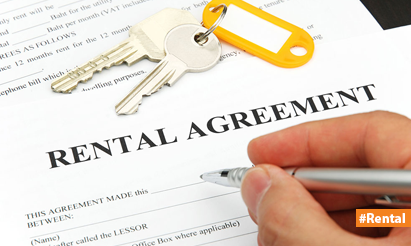Rental Agreement Provision Regarding Security Deposit
A rental deposit clause is one of the many important provisions in the agreement between the owner, or anybody authorized by the owner and the tenant, regarding the condominium.
The following are some crucial considerations regarding the condo deposit provision in the condo agreement that should be kept in mind:
- The amount to be delivered is a condo deposit, usually an “X” amount. For instance, the condo deposit would be Rs 30,000 if the lease was for Rs 15,000 per month and the owner typically required 2 months’ worth of rent as a condo deposit.
- The clause must essentially state whether the quantity will be repaid at the end of the rental period or when the rented space is vacated.
- The maximum amount of time that the tenant will receive their unit deposit back after reasonable owner-assisted deductions have been made.
- For instance, when the tenant physically leaves the property, and so forth.
- In some circumstances, the renter makes a lump sum condo deposit with the understanding that some of the deposit may be applied against upcoming month-to-month rentals.
- For instance, in a location where specific works like fixtures, fittings, and so forth are required but the owner lacks the funds, the renter may also temporarily cover these costs with the understanding that the deposit paid will be deducted from future rents, leaving a minimal amount as deposit.
- If damage is found to the property, it shall further state that reasonable deductions will be made by the owner. For instance, the tenant may offer to repaint the partitions inside the rented space if it is discovered that they are dirty or bear pen or pencil markings, or the owner may remove an appropriate amount from the security deposit.
- Additionally, some landlords might demand a brief lock-in period. A lock-in period is simply a period during which neither the landlord nor the tenant may terminate the condominium agreement unilaterally unless the period has expired; however, they may do so with mutual permission. The owner will receive a guaranteed continuous profit throughout the lock-in period, which is wonderful. The condo deposit will be forfeited if the tenant wants to leave the property before the lock-in period has ended, depending on the settlement, which may be partial or complete.
- However, if the tenant is forced to leave the rented property before the lock-in period has ended, he must wait until he has been fairly compensated for the losses he has suffered as a result of the non-refund of the condo deposit before giving up ownership of the property.
- The normal wear and tear that generally occurs throughout the lease will no longer be included in the damages from which the condo deposit serves as protection.
- The tenant may also demand proof from the landlord that he paid the security deposit for the apartment in cash, by check, by demand draught, by account transfer, etc.
- The amount will be adjusted toward the term of lease costs in the event of late payment of rent by either the tenant or landlord and only the balance will be paid to the owner.
- Additionally, it should be mentioned that the money paid as a condo deposit to the owner will eventually be returned and might even be free of interest.
- The entire condo deposit is not refunded since a portion is kept by utilizing the owner to pay the application costs.
Disclaimer: The views expressed above are for informational purposes only based on industry reports and related news stories. PropertyPistol does not guarantee the accuracy, completeness, or reliability of the information and shall not be held responsible for any action taken based on the published information.
(Visited 136 times, 1 visits today)




